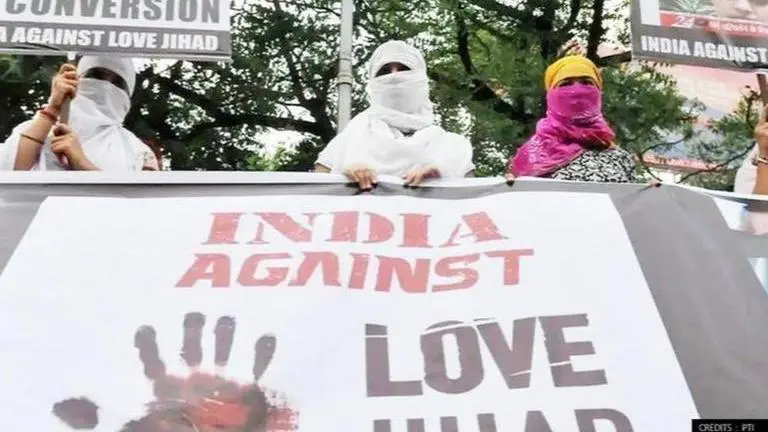Updated 9 February 2022 at 12:28 IST
What is anti-conversion bill tabled in Haryana Assembly? Read details
The Haryana Cabinet on Tuesday approved the draft of The Haryana Prevention of Unlawful Conversion of Religious Bill, 2022. What does the draft Bill state?
- India News
- 3 min read

After several other BJP-ruled states, including Uttar Pradesh, Karnataka, Himachal Pradesh, and Madhya Pradesh passed the Anti-conversion bill, the Haryana Cabinet on Tuesday, February 8, approved the draft of The Haryana Prevention of Unlawful Conversion of Religious Bill, 2022.
The Bill is aimed at prohibiting religious conversions which are affected through misrepresentation, force, undue influence, coercion, allurement, or by any fraudulent means or by marriage or for marriage by making it an offence. As per the official statement, the Bill has now been tabled before the Assembly.
What is Haryana Anti-Conversion Bill?
The draft Bill's statements of objectives and reasons mentioned that the Constitution provides each individual with the fundamental right to profess, practise, and propagate his religion. Since the right to religious freedom belongs equally to the person converting and the individual sought to be converted, the individual right to freedom of conscience and religion cannot be extended to construe a collective right to proselytize. But, there have been reports of religious conversions cases, both mass, and individual.
"Obviously, such incidents have been hotly debated, more so in a multi-religious society, such as ours. The presence of pseudo-social organizations with a hidden agenda to convert the vulnerable sections of other religions. There have been instances when gullible people have been converted by offering allurement or under undue influence. Some have been forced to convert to other religions", the statement further read.
Advertisement
It is mentioned that in the recent past, several instances have been reported where the agenda of the conversion was to increase the strength of their religious group. There were cases where people, marry persons of other religions by either misrepresentation or concealment of their own religion and after getting married they force such other person to convert to their own religion.
Also, the Supreme Court took judicial notice of such instances and said, “Such incidents not only infringe the freedom of religion of the persons so converted but also militate against the secular fabric of our society that conversion just for the purpose of marriage is unacceptable such incidents not only infringe the freedom of religion of the persons so converted but also militate against the secular fabric of our society".
Advertisement
Punishment for illegal conversions
The Bill provides for greater punishment for illegal conversions especially with respect to minors, women, Scheduled Castes, and the Scheduled Tribes. It further provides for the burden of proof as to if the conversion was not affected through misrepresentation, use of force, under threat, undue influence, coercion, allurement, or by any fraudulent means or by marriage or for marriage for the purpose of carrying out conversion lies on the accused.
Individual converting from one religion to another must submit a declaration to the prescribed authority stating that the conversion affected through was not misrepresentation, use of force, under threat, undue influence, coercion, allurement or by any fraudulent means or by marriage or for marriage and such authority shall make an inquiry in such cases. Also, it provides for declaring marriages null and void, which were solemnized by concealment of religion.
(Image: PTI)
Published By : Vidyashree S
Published On: 9 February 2022 at 12:28 IST
